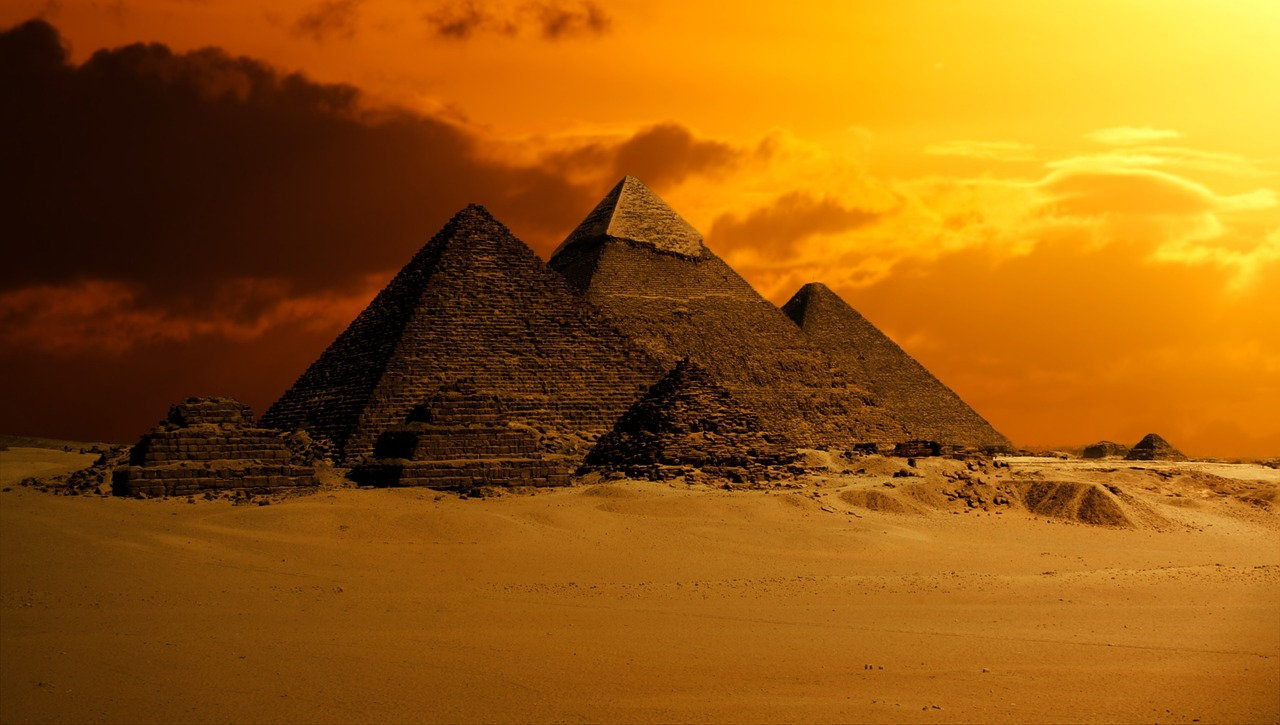Unit 2: Early Civilizations in Ancient Egypt (3100 B.C.-1600 B.C.)
Unit 2: Early Civilizations in Ancient Egypt (3100 B.C.-1600 B.C.)

Unit 2: Early Civilizations in Ancient Egypt (3100 B.C.-1600 B.C.)

Unit 2: Early Civilizations in Ancient Egypt (3100 B.C.-1600 B.C.)
This unit emphasizes the history and contributions of ancient Egypt, one of the world’s first great civilizations, and discusses other early civilizations.
Much of the history of Egypt is divided into three “kingdom” periods—Old, Middle, and New—with shorter intermediate periods separating the kingdoms. The term intermediate here refers to the fact that during these times Egypt was not a unified political power, and thus was “in-between” powerful kingdoms. Even before the Old Kingdom period, the foundations of Egyptian civilization were being laid for thousands of years as people living near the Nile increasingly focused on sedentary agriculture, which led to urbanization and specialized, non-agricultural economic activity.
Evidence of human habitation in Egypt stretches back tens of thousands of years. However, it was only in about 6000 BCE that widespread settlement began in the region. Around this time, the Sahara Desert expanded. Some scientists think this expansion was caused by a slight shift in the tilt of the Earth. Others have explored changing rainfall patterns, but the specific causes are not entirely clear. The most important result of this expansion of the Sahara for human civilization was that it pushed humans closer to the Nile River in search of reliable water sources.
Overview
- Egyptian civilization developed along the Nile River in large part because the river’s annual flooding ensured reliable, rich soil for growing crops.
- The Egyptians kept written records using a writing system known as hieroglyphics. Some writing was preserved on stone or clay, and some was preserved on papyrus, a paper-like product made from reed fiber. Papyrus is very fragile, but due to the hot and dry climate of Egypt, a few papyrus documents have survived.
- Repeated struggles for political control of Egypt showed the importance of the region in terms of its agricultural production and the economic resources that its highly complex social organization produced.
- Egyptian rulers used the idea of divine kingship and constructed monumental architecture to demonstrate and maintain power.
- Ancient Egyptians developed wide-reaching trade networks along the Nile, in the Red Sea, and in the Near East.
Unit Focus
- influence of geography on development in the ancient world
- characteristics and contributions of civilizations in ancient Egypt and other early civilizations
Vocabulary
Lesson Reading
Videos and Interactives (Click on Images to View Content)

